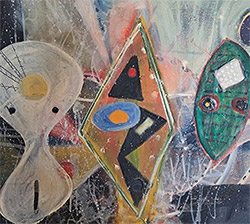
The legendary trio Joseph Holbrooke — guitarist Derek Bailey, bassist Gavin Bryars, and drummer Tony Oxley — reunited after decades for one final performance in 2001, captured in this historic live recording that highlights their uncompromising commitment to free improvisation, the set resonating with both the radical spirit of their 1960s origins and the profound artistry of three pioneering voices in avant-garde music.
Out of Stock.
Quantity in Basket: None
Log In to use our Wish List
Shipping Weight: 5.00 units
EU & UK Customers:
Discogs.com can handle your VAT payments
So please order through Discogs
Sample The Album:
Derek Bailey-guitar
Gavin Bryars-bass
Tony Oxley-drums, percussion
Click an artist name above to see in-stock items for that artist.
UPC: 702397405627
Label: Tzadik
Catalog ID: CD-TZA-4056
Squidco Product Code: 36551
Format: 2 CDs
Condition: New
Released: 2025
Country: USA
Packaging: Digipack - 6 panel
Recorded live in concert at deSingel, in Antwerp, Belgium, in January, 2001.
"Joseph Holbrooke was a legendary all-star ensemble from the mid Sixties dedicated to free improvisation. Comprising three of the most acclaimed virtuosos from the first generation of British improvisers — Bailey, Bryars, and Oxley — little has been released, but they briefly reformed in 1998 and the studio recordings from that period were made available in 2006 on Tzadik as The Moat Recordings.
Last Live 2001 is exactly that-their last live concert ever! Recorded in Antwerp in January of 2001, the ensemble is at their exploratory best in this newly discovered gem from the archives of composer/improviser maestro Gavin Bryars."-Tzadik
The British free improvisation trio of Derek Bailey (guitar), Tony Oxley (drums), and Gavin Bryars (bass) — originally known as Joseph Holbrooke — were pivotal in the 1960s avant-garde scene, pushing the boundaries of collective improvisation. Briefly reuniting in 1998 for studio sessions released as The Moat Recordings and performing one final concert in 2001, now issued as Last Live 2001 — In Memoriam Derek Bailey And Tony Oxley, their work captures both the origins and enduring influence of radical improvisation.
Artist Biographies
• Show Bio for Derek Bailey "Derek Bailey (29 January 1930 - 25 December 2005) was an English avant-garde guitarist and leading figure in the free improvisation movement. Bailey was born in Sheffield, England. A third-generation musician, he began playing the guitar at the age of ten, initially studying music with his teacher and Sheffield City organist C. H. C. Biltcliffe, an experience that he did not enjoy, and guitar with his uncle George Wing and John Duarte. As an adult he worked as a guitarist and session musician in clubs, radio, dance hall bands, and so on, playing with many performers including Morecambe and Wise, Gracie Fields, Bob Monkhouse and Kathy Kirby, and on television programs such as Opportunity Knocks. Bailey's earliest foray into 'what could be called free improvised music' was in 1953 with two other guitarists in their shared flat in Glasgow. He was also part of a Sheffield-based trio founded in 1963 with Tony Oxley and Gavin Bryars called "Joseph Holbrooke" (named after the composer, whose work they never actually played). Although originally performing relatively "conventional" modal, harmonic jazz this group became increasingly free in direction. Bailey moved to London in 1966, frequenting the Little Theatre Club run by drummer John Stevens. Here he met many other like-minded musicians, such as saxophonist Evan Parker, trumpet player Kenny Wheeler and double bass player Dave Holland. These players often collaborated under the umbrella name of the Spontaneous Music Ensemble, recording the seminal album Karyobin for Island Records in 1968. In this year Bailey also formed the Music Improvisation Company with Parker, percussionist Jamie Muir and Hugh Davies on homemade electronics, a project that continued until 1971. He was also a member of the Jazz Composer's Orchestra and Iskra 1903, a trio with double-bass player Barry Guy and tromboneist Paul Rutherford that was named after a newspaper published by the Russian revolutionary Vladimir Lenin. In 1970, Bailey founded the record label Incus with Tony Oxley, Evan Parker and Michael Walters. It proved influential as the first musician-owned independent label in the UK. Oxley and Walters left early on; Parker and Bailey continued as co-directors until the mid-1980s, when friction between the men led to Parker's departure. Bailey continued the label with his partner Karen Brookman until his death in 2005[citation needed]. Along with a number of other musicians, Bailey was a co-founder of Musics magazine in 1975. This was described as "an impromental experivisation arts magazine" and circulated through a network of like-minded record shops, arguably becoming one of the most significant jazz publications of the second half of the 1970s, and instrumental in the foundation of the London Musicians Collective. 1976 saw Bailey instigate Company, an ever-changing collection of like-minded improvisors, which at various times has included Anthony Braxton, Tristan Honsinger, Misha Mengelberg, Lol Coxhill, Fred Frith, Steve Beresford, Steve Lacy, Johnny Dyani, Leo Smith, Han Bennink, Eugene Chadbourne, Henry Kaiser, John Zorn, Buckethead and many others. Company Week, an annual week-long free improvisational festival organised by Bailey, ran until 1994. In 1980, he wrote the book Improvisation: Its Nature and Practice. This was adapted by UK's Channel 4 into a four-part TV series in the early '90s, edited and narrated by Bailey. Bailey died in London on Christmas Day, 2005. He had been suffering from motor neurone disease." ^ Hide Bio for Derek Bailey • Show Bio for Gavin Bryars "Richard Gavin Bryars (born 16 January 1943) is an English composer and double bassist. He has worked in jazz, free improvisation, minimalism, historicism, avant-garde, and experimental music. Born on 16 January 1943 in Goole, in the East Riding of Yorkshire, England, Bryars studied philosophy at Sheffield University but became a jazz bassist during his three years as a philosophy student. The first musical work for which he is remembered was his role as bassist in the trio Joseph Holbrooke, alongside guitarist Derek Bailey and drummer Tony Oxley. The trio began by playing relatively traditional jazz Š they toured with saxophonist Lee Konitz in 1966 Š before moving into free improvisation. Bryars became dissatisfied with this when he saw a young bassist (later revealed to be Johnny Dyani) play in a manner that seemed to him to be artificial, and he abandoned improvisation, becoming interested in composition instead. In 1998 the trio reformed briefly, giving two live performances and making recordings. Bryars's first compositions owe much to the New York School of John Cage (with whom he briefly studied), Morton Feldman, Earle Brown and minimalism. One of his earliest pieces, The Sinking of the Titanic (1969), is an indeterminist work that allows the performers to take a number of sound sources related to the sinking of the RMS Titanic and make them into a piece of music. The first recording of this piece appeared on Brian Eno's Obscure Records in 1975. The 1994 recording was remixed by Aphex Twin as Raising the Titanic (later collected on the 26 Mixes for Cash album). In 2012, the centenary of the Titanic's sinking, Bryars made a new extended version, with film projections by Bill Morrison and Laurie Olinder, that included his four children as a low-string ensemble (viola, 2 cellos, bass) and turntablist Philip Jeck, subsequently released on GB records (BCGBCD21 2013)The Sinking of the TitanicDuration: 38 seconds.0:38Sample of The Sinking of the Titanic by Gavin Bryars.Problems playing this file? See media help. Another well-known early work is Jesus' Blood Never Failed Me Yet (1971), which has as its basis a recorded loop of a homeless man singing a musical fragment that the old man had improvised. On top of that loop, rich harmonies played by a live ensemble are built, always increasing in density, before the whole thing gradually fades out. A recording of this work was made in 1993 with Tom Waits singing along with the original recording of the vagrant during the final section. Bryars was a founding member in May 1970 of the Portsmouth Sinfonia, an orchestra whose membership consisted of performers who "embrace the full range of musical competence" Š and who played popular classical works. Its members included Brian Eno, whose Obscure Records label would subsequently release works by Bryars. In one of the label's first three releases, Eno's album Discreet Music, Bryars conducted and co-arranged Three Variations on the Canon in D Major by Johann Pachelbel, which constitutes the second half of the album. The 1992 composition A Man in a Room Gambling was written on commission from Artangel. Bryars's music is heard beneath monologues spoken by the Spanish artist Juan Mu–oz, who talks about methods of cheating at card games (drawing on The Expert at the Card Table by S. W. Erdnase). The ten short works were played on BBC Radio 3 without any introductory announcements, and Bryars wrote that Mu–oz hoped they would appear to the listener in a similar way to the Shipping Forecast, "bemused by this fleeting and perhaps enigmatic curiosity." Bryars has written many other works, including five operas, and many instrumental pieces, among them four string quartets and several concertos. He has written several pieces for dance, including Biped (1999) for Merce Cunningham, as well as works for William Forsythe, Carolyn Carlson, Edouard Lock and David Dawson. In 1981Š1984 Bryars participated in the CIVIL warS, a vast, never-completed multimedia project by Robert Wilson, who also directed his first opera, Medea. His cello concerto Farewell to Philosophy was recorded in 1996 by Julian Lloyd Webber. He has also written a large body of vocal and choral music for groups such as the Hilliard Ensemble, the Latvian Radio Choir, the Estonian National Men's Choir, Red Byrd, Trio Mediaeval, Singer Pur, Nordic Voices and The Crossing, whose recording of "The Fifth Century" won a Grammy in 2019. He has written a great deal for early music performers including six books of madrigals, several works for viol consort and a collection of 54 "laude" based on a 12th century manuscript. Bryars' When Harry Met Addie (a tribute to jazz singer Adelaide Hall and saxophonist Harry Carney) was premiered at the Duke Ellington Memorial Concert at the Queen Elizabeth Hall, London, on 1 May 1999. The piece was performed by the London Sinfonietta Big Band and commissioned by the baritone saxophonist/bass clarinettist John Surman. Cristina Zavalloni sang the soprano and the London Sinfonietta Big Band was conducted by Diego Massonį Bryars founded the music department at Leicester Polytechnic (now De Montfort University), and was Professor of Music there for several years. He left in 1994 to concentrate on composition and performance. He lives in England, and, for part of the year, on the west coast of Canada. Since 1986 Bryars has run The Gavin Bryars Ensemble with his preferred musicians, consisting chiefly of low strings. Now, in addition, this regularly includes his children (2 cellos, piano and double bass) Since 1974 Bryars has been a member of the Coll¸ge de 'Pataphysique and was elected Regent in 2001. In 2015 he was named Transcendent Satrap, the highest honour in the Coll¸ge, a position he shares with Marcel Duchamp, Man Ray, Eug¸ne Ionesco, Umberto Eco, and others. In 2020, Bryars composed Altissima Luce for Sound WorldÕs Coronavirus Fund for Freelance Musicians, a project supporting struggling musicians during the UKÕs Covid 19 lockdown. It was included on the album Reflections alongside specially written pieces by other composers such as Nico Muhly, Mark-Anthony Turnage, Evelyn Glennie and Sally Beamish. In 2023, Bryars collaborated with Goole band Sandra's Wedding on their new EP, "Another Rugby League Town". Also in 2023, Bryars provided a special guest vocal for experimental composer Bill Vine's work, "Norwich Under the Water". The piece premiered at Norwich Cathedral in August 2023. In November 2024, Bryars received the Ivor Novello Award for Innovation, presented in association with the Musicians' Union, at The Ivors Classical Awards." ^ Hide Bio for Gavin Bryars • Show Bio for Tony Oxley "Tony Oxley (born 15 June 1938) is an English free-jazz drummer and one of the founders of Incus Records. ony Oxley was born in Sheffield, England. A self-taught pianist by the age of eight, he first began playing the drums at seventeen. In Sheffield he was taught by well respected local drummer Haydon Cook, who had returned to the city after a long residency, in the 1950s, at Ronnie Scotts in London. While in the Black Watch military band from 1957 to 1960 he studied music theory and improved upon his drumming technique. From 1960 to 1964 he led his own quartet which performed locally in England, and in 1963 he began working with Gavin Bryars and guitarist Derek Bailey in a trio known as Joseph Holbrooke. Oxley moved to London in 1966 and became house drummer at Ronnie Scott's, where he accompanied visiting musicians such as Joe Henderson, Lee Konitz, Charlie Mariano, Stan Getz, Sonny Rollins and Bill Evans until the early 1970s. He was also a member of various groups led by musicians such as Gordon Beck, Alan Skidmore and Mike Pyne. In 1969 Oxley appeared on the recording of the later released John McLaughlin album Extrapolation and also formed his own quintet consisting of Derek Bailey, Jeff Clyne, Evan Parker and Kenny Wheeler, releasing the album The Baptised Traveller. Following this album the group was joined by Paul Rutherford on trombone and became a sextet, releasing the 1970 album 4 Compositions for Sextet. That same year Oxley helped found Incus Records along with Bailey and others and also the Musicians Cooperative. He also received a three-month "artist-in-residence" at the Sydney Conservatorium in Australia in 1970. Around this time he joined the London Jazz Composers Orchestra and also got involved with collaborations with Howard Riley. In 1973 he became a tutor at the Jazz Summer School in Barry, South Wales, and in 1974 he formed another group of his own known as Angular Apron. Through the 1980s he worked with various musicians, including Tony Coe and Didier Levallet, also forming his own Celebration Orchestra during the latter half of that decade. Oxley also did extensive touring with Anthony Braxton in 1989, and also began a long-lasting working relationship with Cecil Taylor during this period.Oxley at the Moers Festival, Germany, in 2008 In 1993 he joined an international quartet that included Tomasz Sta ko, Bobo Stenson, and Anders Jormin, and in 2000 he released the album Triangular Screen with the Tony Oxley Project 1, a trio with Ivar Grydeland and Tonny Kluften." ^ Hide Bio for Tony Oxley
9/3/2025
Have a better biography or biography source? Please Contact Us so that we can update this biography.
9/3/2025
Have a better biography or biography source? Please Contact Us so that we can update this biography.
9/3/2025
Have a better biography or biography source? Please Contact Us so that we can update this biography.
Track Listing:
CD 1
1. Rethink 27:08
2. At Peace 27:40
CD 2
1. Apotheosis 35:19
2. Epilogue 8:30
Tzadik
Improvised Music
Free Improvisation
Collective & Free Improvsation
London & UK Improv & Related Scenes
Trio Recordings
Bailey, Derek
Staff Picks & Recommended Items
New in Improvised Music
Recent Releases and Best Sellers
Search for other titles on the label:
Tzadik.


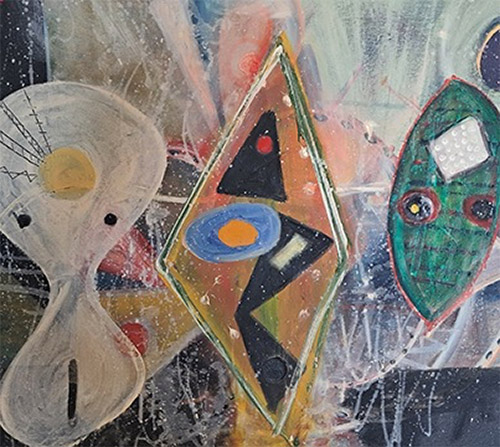


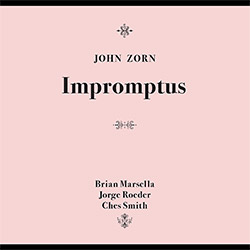
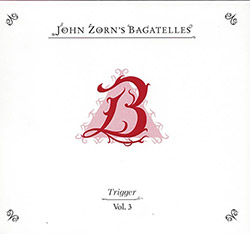


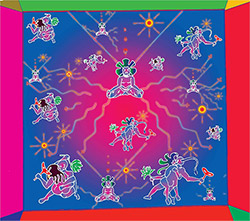
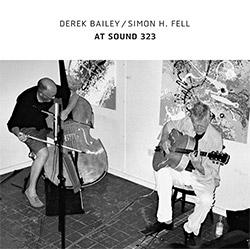
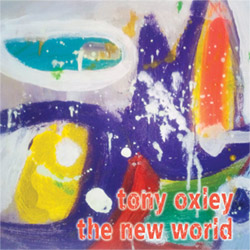

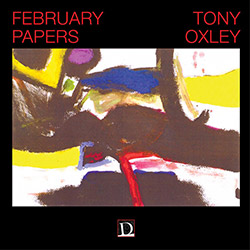




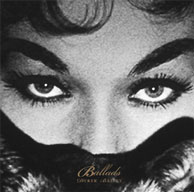

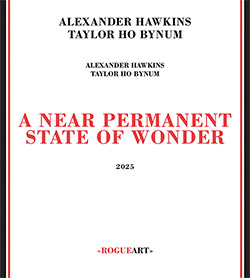
![Putman, Matthew / Hill Greene / Francisco Mela: Believe That Was Me [VINYL]](https://www.teuthida.com/productImages/misc4/36411.jpg)
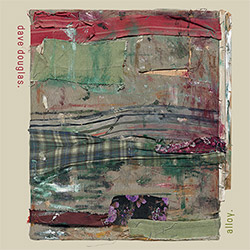


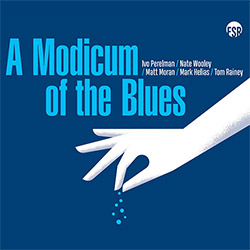


![Extraordinary Popular Delusions (Mars Williams / Jim Baker / Ed Wilkerson / Brian Sandstrom / Steve Hunt): The Last Quintet [2 CDs]](https://www.teuthida.com/productImages/misc4/36629.jpg)


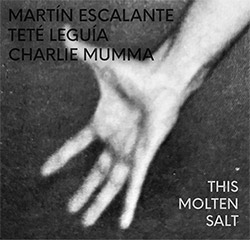
![Halat, Marcin / Maciej Garbowski: The Dialogues [2 CDs]](https://www.teuthida.com/productImages/misc4/36644.jpg)

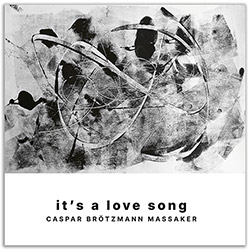
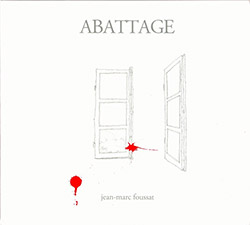


![A Magic Whistle: The Solar Cell [VINYL]](https://www.teuthida.com/productImages/misc4/36658.jpg)
![Yoshida, Tatsuya / Martin Escalante: The Sound of Raspberry [VINYL]](https://www.teuthida.com/productImages/misc4/36634.jpg)


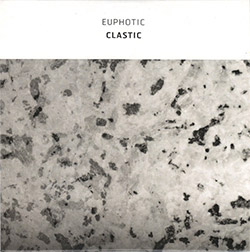
![McGee, Hal: Columbus Expedition [Cassette w/ Download]](https://www.teuthida.com/productImages/misc4/36650.jpg)

![Chadbourne, Eugene / Jair-Rohm Parker Wells : Fed Up With Bass [2 CDs]](https://www.teuthida.com/productImages/misc4/36656.jpg)


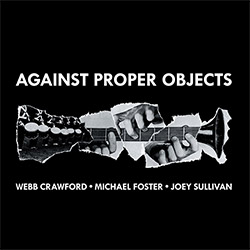


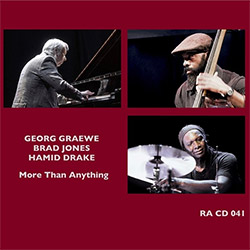
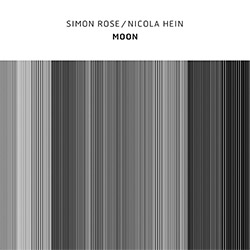
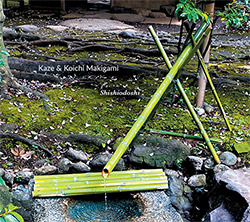


![Sun Ra: Sleeping Beauty [VINYL]](https://www.teuthida.com/productImages/misc4/36405.jpg)

![Agosti, Monica Nica / ShapeX: Ornettiana [VINYL]](https://www.teuthida.com/productImages/misc4/36514.jpg)
![Flut (Kunz / Rossler / Hall): Stones That I Have Chiseled [VINYL]](https://www.teuthida.com/productImages/misc4/36516.jpg)
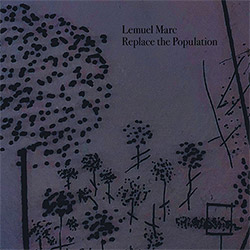

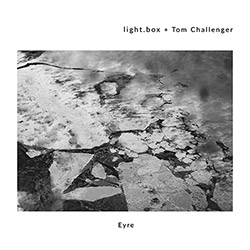


![Jaeger, Kassel: Fernweh [VINYL 2 LPs]](https://www.teuthida.com/productImages/misc4/36541.jpg)





![+DOG+: The Light Of Our Lives [2 CDs]](https://www.teuthida.com/productImages/misc4/36009.jpg)


![Eternities: Rides Again [CASSETTE]](https://www.teuthida.com/productImages/misc4/36247.jpg)

![Lopez, Francisco: Untitled (2021-2022) [2 CDs]](https://www.teuthida.com/productImages/misc4/36438.jpg)






![Money : Money 2 [2 CDs]](https://www.teuthida.com/productImages/misc4/35894.jpg)




![Klinga, Erik: Elusive Shimmer [VINYL]](https://www.teuthida.com/productImages/misc4/36258.jpg)


![Musicworks Magazine: #151 Summer 25 [MAGAZINE + CD]](https://www.teuthida.com/productImages/misc4/36559.jpg)

![Brown, Dan / Dan Reynolds: Live At The Grange Hall [unauthorized][CASSETTE]](https://www.teuthida.com/productImages/misc4/36245.jpg)








![Palestine, Charlemagne / Seppe Gebruers: Beyondddddd The Notessssss [VINYL]](https://www.teuthida.com/productImages/misc4/36206.jpg)
![Palestine, Charlemagne / Seppe Gebruers: Beyondddddd The Notessssss [NEON GREEN VINYL]](https://www.teuthida.com/productImages/misc4/36207.jpg)

![Laubrock, Ingrid: Purposing The Air [2 CDs]](https://www.teuthida.com/productImages/misc4/35639.jpg)

![Yoko, Ono / The Great Learning Orchestra: Selected Recordings From Grapefruit [2 CDs]](https://www.teuthida.com/productImages/misc4/35841.jpg)









![Zorn, John / JACK Quartet: The Complete String Quartets [2 CDs]](https://www.teuthida.com/productImages/misc4/35609.jpg)

![Koenjihyakkei: Live at Club Goodman [2 CDs]](https://www.teuthida.com/productImages/misc4/36111.jpg)

![Sorry For Laughing (G. Whitlow / M. Bates / Dave-Id / E. Ka-Spel): Rain Flowers [2 CDS]](https://www.teuthida.com/productImages/misc4/35985.jpg)

![Rolando, Tommaso / Andy Moor : Biscotti [CASSETTE w/ DOWNLOADS]](https://www.teuthida.com/productImages/misc4/36106.jpg)


![Electric Bird Noise / Derek Roddy: 8-10-22 [CD EP]](https://www.teuthida.com/productImages/misc4/35970.jpg)








![Elephant9 : Mythical River [VINYL]](https://www.teuthida.com/productImages/misc4/34624.jpg)



![Elephant9 with Terje Rypdal: Catching Fire [VINYL 2 LPs]](https://www.teuthida.com/productImages/misc4/35355.jpg)
![Deerlady (Obomsawin, Mali / Magdalena Abrego): Greatest Hits [VINYL]](https://www.teuthida.com/productImages/misc4/34876.jpg)







![Coley, Byron: Dating Tips for Touring Bands [VINYL]](https://www.teuthida.com/productImages/misc4/17906.jpg)

![Lost Kisses: My Life is Sad & Funny [DVD]](https://www.teuthida.com/productImages/misc4/lostKissesDVD.jpg)